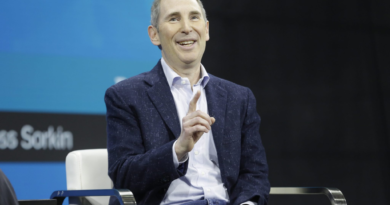Hidden recession? Mental illness costs the US a staggering $282B annually, shows new study
Mental illness isn’t just a pervasive problem in the U.S.—one in five adults experience it each year, per the nonprofit National Alliance on Mental Illness—it’s also an expensive one, costing the economy $282 billion annually. This, according to a new study by economists at Yale and Columbia universities and the University of Wisconsin-Madison.
The research, published in April as a working paper by the nonpartisan National Bureau of Economic Research, reveals the estimate is equivalent to an average economic recession, or 1.7% of the nation’s aggregate consumption. The $282 billion price tag is also 30% more than costs estimated in previous epidemiological studies, which researchers noted focused on the cost of treatment and income loss due to mental illness.
“In this paper, we develop the first integrated model of macroeconomics and mental health building on classic and modern psychiatric theories,” coauthor Aleh Tsyvinski, PhD, a professor in the Yale Department of Economics, said in a news release. “We show that mental illness alters people’s consumption, savings, portfolio choices, as well as the country’s labor supply, generating enormous annual costs to our economy.”
People with mental illness may consume less, opt for less-demanding jobs, and avoid investing in risky assets such as a house or stocks, Tsyvinski said. His team’s data showed people experiencing mild or severe mental illness consumed 3–7% fewer goods and services and worked 13–23% less than healthy individuals.
“We wanted to get a better understanding of mental illness and quantify its economic costs,” coauthor Job Boerma, PhD, an assistant professor in the Department of Economics at UW-Madison, said in another news release. “Mental illness is something that 20% of the population experiences at any given point in time. The fact that the costs of mental illness amount to a number as large as 1.7% of aggregate consumption for the U.S. population—that’s massive.”
Increasing mental health care access would boost economy
Boerma and Tsyvinski, along with Boaz Abramson, PhD, an assistant professor in the Finance Division at Columbia Business School, applied their research to three policy proposals backed by the Biden administration:
As of April 1, more than 122 million Americans were living in mental health professional shortage areas, according to health policy nonprofit KFF. In these locales, just 27% of mental health care needs are met. Eliminating this deficit would not only reduce mental illness by 3.1% but also bear societal benefits equal to 1.1% of aggregate consumption, or $118 billion, the study found.
Providing care for everyone ages 16–25 experiencing mental illness would be even more beneficial, resulting in estimated gains of 1.7% of aggregate consumption.
However, the researchers found that lowering mental health care costs would result in minimal economic impact. The problem, according to Boerma, is many people with mental illness don’t seek treatment, whether due to a dearth of available services, stigma attached to mental illness, or belief treatment would be ineffective. Cheaper services would be unlikely to surmount the challenges.
“If you don’t affect those other factors, lowering the cost of care itself is not going to increase people’s propensity to take up treatment,” Boerma said.
Next, Boerma plans to make lawmakers aware of his team’s findings, saying in a UW-Madison news release he hopes the continued blending of economic and psychiatric research will fuel science-backed policymaking.
“Very exciting insights are always coming at the edges or the overlaps of different fields,” Boerma said. “It will be good for the field if we do this more.”
If you need immediate mental health support, contact the 988 Suicide & Crisis Lifeline.
For more on mental health:
Subscribe to Well Adjusted, our newsletter full of simple strategies to work smarter and live better, from the Fortune Well team. Sign up for free today.




